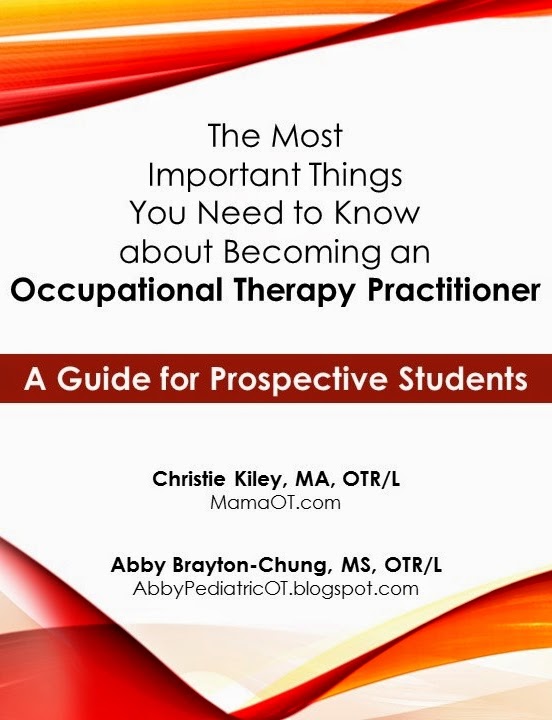To become an occupational
therapy practitioner, you must attend an accredited occupational therapy school
to be eligible to sit for the NBCOT exam. Accredited just means that the school
meets the educational standards put in place by AOTA’s Accreditation Council
for Occupational Therapy Education (ACOTE). There are currently 326
occupational therapy and occupational therapy assistant educational programs in
the United States and its territories! You can find a list of all of the
accredited schools by visiting AOTA’s
website.
A few things to keep in mind when choosing the best school for you
First of all, you need to find a school that is the right fit for you.
What might be the best fit for your friend or neighbor or cousin, won’t
necessarily be the right fit for you. There are a lot of schools to choose from
and every individual has different needs and requirements.
Here are some questions to ask
yourself when looking for an occupational therapy program that is the best
match for you:
·
Do you want to (or need to) stay close to home?
·
What are the admissions requirements?
·
What are the prerequisites?
·
What is the cost of the program?
·
What makes the program unique?
·
What are the requirements for graduation? (e.g. completion of a
Master’s thesis or project)
If at all possible, visit
the programs you are interested in attending and meet with an admissions
counselor. Often you will get an intuitive feel about whether a program is
the right fit for you just by visiting. Be sure to check out the strengths of
the programs in which you are interested. Maybe an OT program has a student-run
clinic or a research center that matches your interests. Some schools offer
specialty certifications, combined bachelor’s/master’s programs, or specific fieldwork
requirements, just to give a few examples of things that may set a school apart.
These are all worth looking into when checking out a potential occupational
therapy program.
Last, but not least, you need to consider expenses. Private schools are much more expensive than public schools, and out of state tuition can be very high for non-residents. Be sure to take your own financial situation into consideration when choosing an OT school, and it is always worth looking into the financial aid that each school offers to see if you might qualify for any assistance.
This post is an adapted excerpt from my new FREE e-book I co-authored with Christie Kiley, entitled The Most Important Things You Need to Know about Becoming an Occupational Therapy Practitioner: A Guide for Prospective Students.
Click HERE
or on the image above to get your own copy of the free e-book! Help
other prospective students by sharing the link on your social media
using #OTguide.
P.S. Tips for deciding between OT and OTA.
P.S. Tips for deciding between OT and OTA.


No comments:
Post a Comment